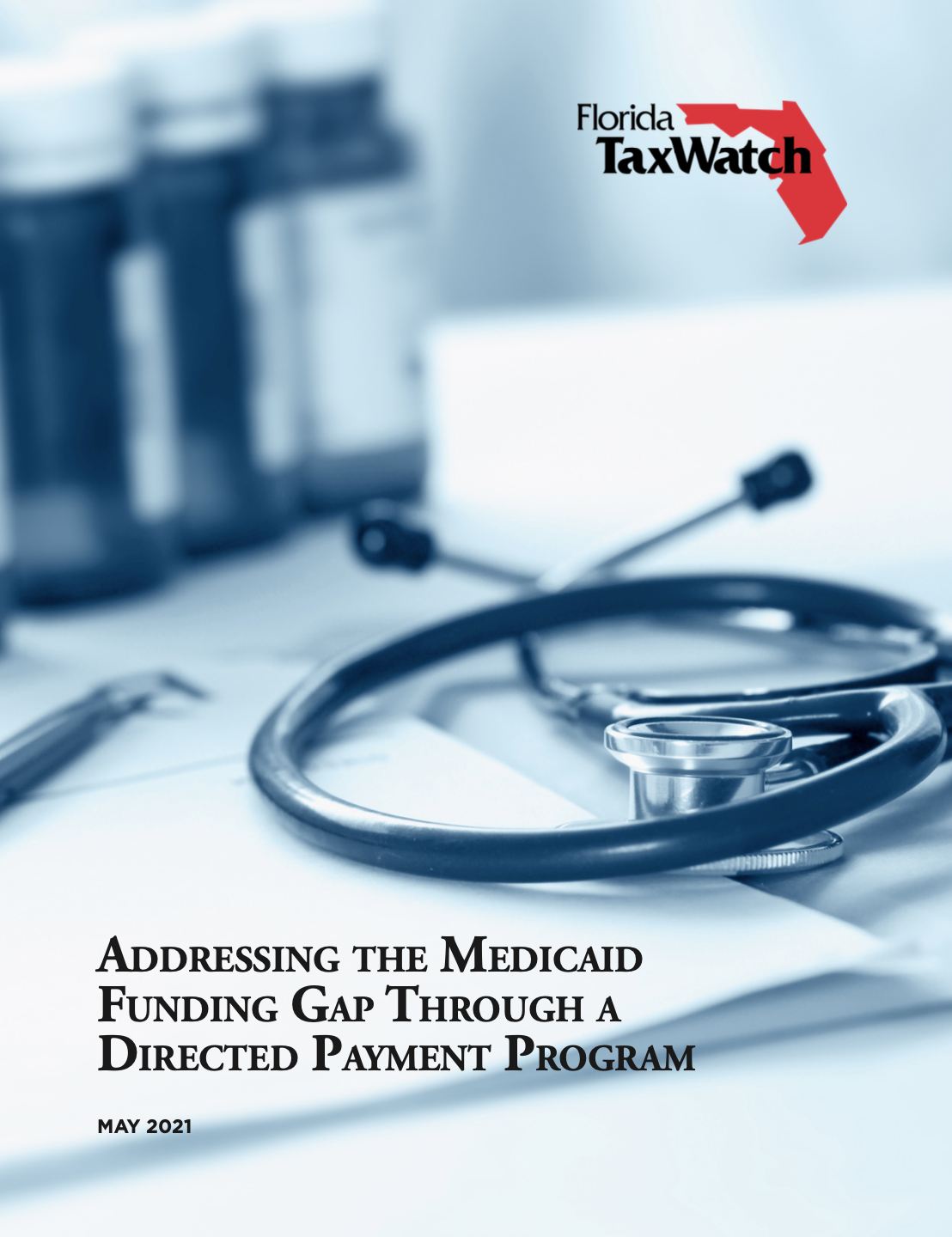Addressing the Medicaid Funding Gap Through a Directed Payment Program

Medicaid is a joint federal-state health insurance program that provides medical coverage to more than four million low-income Floridians. Administered by the state Agency for Health Care Administration, Medicaid is jointly funded through a federal cost-sharing agreement. During fiscal year 2020-21, Florida’s appropriated budget for Medicaid is $29.7 billion.
Since the start of the COVID-19 pandemic in March 2020, Medicaid enrollment has increased from 3.8 million to 4.6 million, and there is every reason to believe that Medicaid enrollment will continue to increase throughout the remainder of the current fiscal year and throughout FY 2021-2022. As more enrollees seek additional care, the cost to administer and deliver medical services to Medicaid beneficiaries throughout the state will increase. By fiscal year 2021-22, Medicaid expenditures are expected to increase to $32.6 billion with the state’s share of costs increasing by nearly $2.0 billion and the federal share of costs decreasing by around $1.0 billion.
Rising Medicaid enrollment has the two-fold effect of constraining the state’s Medicaid budget and worsening hospital Medicaid shortfalls. Any potential solution, therefore, should remedy the two problems without jeopardizing quality access to health care for populations that depend on Medicaid. One such solution is the Medicaid Directed Payment Program (DPP), which helps hospitals recoup unmet costs expended in the delivery of care by unlocking additional federal funds. The DPP is a local option that allows local governments to establish a non-ad valorem (non-property tax) special assessment that is charged solely to hospitals. Revenue generated through this special assessment is placed into a Local Provider Participation Fund (LPPF) and is matched with federal funds to provide Florida’s hospitals with the supplemental Medicaid reimbursement. This helps to ensure that the non-federal share is paid by the hospitals, rather than by individuals or businesses with no ties to Medicaid. The Medicaid DPP must be approved by the CMS and must also be authorized by the Florida Legislature annually.
Florida TaxWatch recommends the Legislature adequately fund hospitals for the services provided to ensure access to care for Florida’s Medicaid recipients. In addition, Florida TaxWatch supports authorizing a Medicaid DPP to secure additional federal Medicaid matching funds and authorize necessary spending and review by AHCA to implement this program efficiently and effectively.